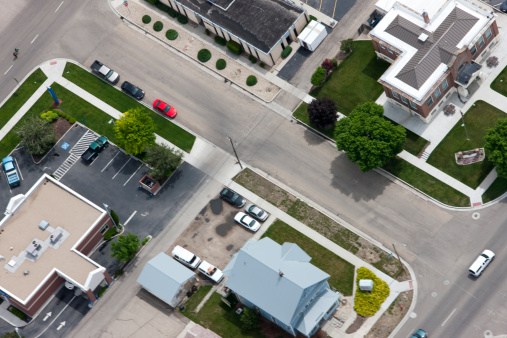Apple stated that they have never tracked users’ locations, but admitted to a bug that inherently collects user data by logging a complete history of travels by way of timestamped latitude and longitude. This week, they announced a software update that prevents the iPhone and iPad from storing these movements.
After the Apple discovery was made, it was quickly realized that Google’s Android phone also tracks user data.
The privacy breach is clear – both phones track and create a file of where you’ve been. This file is accessible by simply plugging your phone into a computer.
Whether it’s Verizon or AT&T, we already know the phone carriers track us. Sure, we should have access to this information – or at least the ability to permit how it’s released. And now that the devices themselves are being tracked, our info can be accessed by anyone privy to our phone.
With our permission and knowledge (unlike what’s happening here with Apple and Google) we’re happy to forfeit privacy in exchange for apps that ultimately make things fun and/or more convenient in life.
On Facebook for example, we’re happy to sacrifice personal information in exchange to use the site for free.
And we actually need tracking enabled on our phones to use location-based services like Google maps. By using a smart phone in the first place, we acknowledge that the phone is capable of having advanced features such as these.
Trust me, I get pissed off all the time at the countless ways that government and telcos track our activity. I even got mad when the Ralph’s rewards card came on the scene, allowing grocers to track our food buying habits.
But that’s the way technology works. We’ve been sacrificing little things all along the way, oftentimes without even knowing it.
And the thing is, we need to release our fears about privacy in order to keep driving technology forward. In other countries like Japan, technologies like Near Field Communication (NFC) enable a device at a specific location to gather information, make payments, and much, much, more.
One specific use case aids the elderly. With NFC technology, a person can request a meal from Meals on Wheels. The service provider can monitor the order and track the delivery in real time.
NFC will allow us to use our phone for pretty much everything – for paying tolls, passing security points, buying and using tickets, all while earning coupons and loyalty points along the way.
The possibilities are endless.
We hate the idea of losing our phone now. Just imagine what it’ll be like when our actual banking information is tied to it. In theory, a number will exist that’ll shut down all services connected to the missing phone. The logistics will evolve with the technology, even if at a stuttering pace like they are now. The critical part is making sure we’re being kept safe out there.
There’s a fine line between sacrificing something that’s already gone – like privacy – for the sake of bettering technology for all.
Dr. Robert Bilder (Professor of Psychiatry & Biobehavioral Sciences at UCLA & Director of the Tennenbaum Family Center for the Biology of Creativity) believes that technology can be designed for health and happiness so long at is it used for the better good.
“The best plan for the future leverages knowledge of the past – and bridging gaps to the future demands action today,” he says.
We can contribute to the next wave of improvement for mankind. Or, we can choose not to – to continue tweeting about what we just ate and not questioning the system that’s changing so very rapidly right before our eyes.
Soon, technology will be able to predict behavior. Apps can be set up to automate everything from ordering concert tickets the moment they go on sale (I’ll finally see Radiohead!), to remembering to pay that parking ticket on time, to pre-ordering food from…Ralph’s.
We live in a fascinating time. It’s ultimately up to us to decide how to use technology by leveraging it for the betterment of society, and whistleblow the issues as we see them.
More:
Web Dating Going Mobile Bucks Privacy Concern Over Apple, Google
Apple’s Steve Jobs responds to iPhone tracking questions
Apple Sued Over Privacy Concerns Regarding App Tracking
TEDxSanDiego – Dr Robert Bilder – Personal Brain Management

Ha, that’s actually a really good suggestion.
Comments are closed.